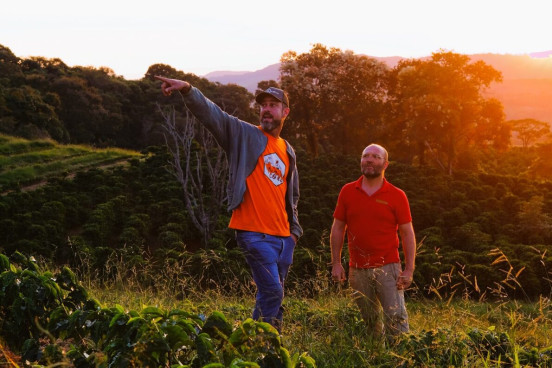Wakuli brings change to the coffee industry

The CSR Risk Check highlights the potential CSR risks associated with traditional coffee value chains. For instance, the majority of Brazilian coffee farmers uses toxic pesticides (theme in the CSR Risk Check: health & safety at work) and the establishment of coffee plantations is often related to deforestation (theme in the CSR Risk Checker: deforestation & biodiversity). Wakuli aims to change this system, partly through regenerative farming. This method goes beyond organic or sustainable agriculture, which is focused on minimising damage. Instead, regenerative agriculture takes full account of natural processes, while also ensuring ecological gains. It is challenging to integrate regenerative methods within a farm. Therefore, Wakuli facilitated a training week for farmers, and developed materials for them to move forward independently.
To further explore the potential for regenerative production, Wakuli is going to conduct A/B tests on at least eight farms in the form of pilots. In addition, the Brazilian production partner - Coopervass - is going to include the necessary ingredients for compost, while also providing incentives to use less fertiliser and pesticides.
More testimonials
AFRIEK
AFRIEK is a cross-cultural fashion brand making artistic clothing with a story. The brand believes in collaboration for sustainable impact. People and planet are at the heart of its operations; the clothing brand has addressed multiple risks from the CSR Risk Checker in recent years

This company makes sustainable touchscreens
Electronics and responsible manufacturing do not always seem to be a fortunate combination. The production of phones puts high pressure on the environment, along with associated risks to workers' health and wellbeing. For instance, extracting raw materials in mines can be dangerous. Likewise, stories of toxic chemicals in the production of phone screens are well-known.
 Deutsch
Deutsch